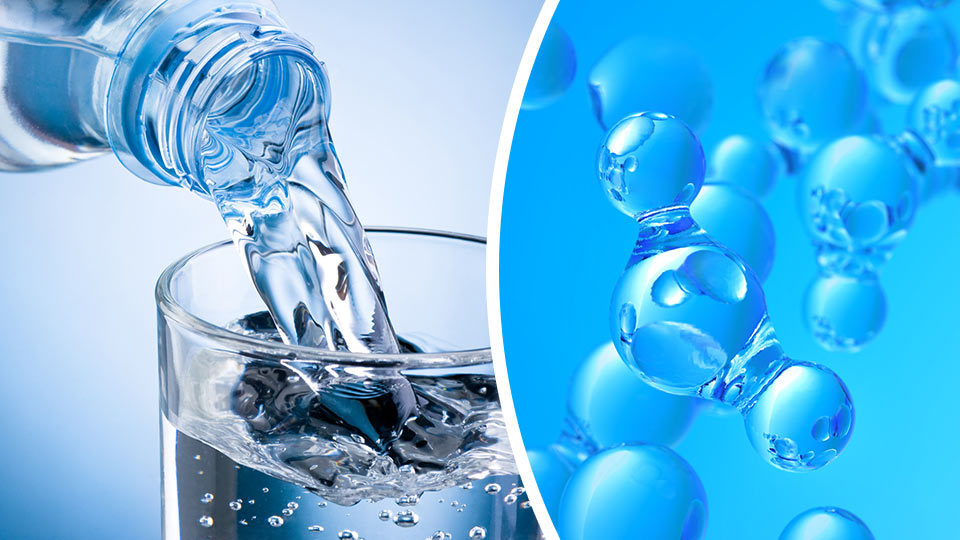Welcome to DU!
The truly grassroots left-of-center political community where regular people, not algorithms, drive the discussions and set the standards.
Join the community:
Create a free account
Support DU (and get rid of ads!):
Become a Star Member
Latest Breaking News
Editorials & Other Articles
General Discussion
The DU Lounge
All Forums
Issue Forums
Culture Forums
Alliance Forums
Region Forums
Support Forums
Help & Search
Science
Related: About this forumHydrogen Water: Extra Healthy or a Hoax?--A Systematic Review at NIH.gov

Hydrogen Water: Extra Healthy or a Hoax?—A Systematic Review
Abstract
Hydrogen-rich water (HRW) has emerged as a novel approach in the field of health and wellness. It is believed to have therapeutic antioxidant properties that can neutralize harmful free radicals in the human body. It has also been shown to be beneficial in mitigating oxidative stress-induced damage through its anti-inflammatory and anti-apoptotic pathways. We aim to conduct a systematic review to evaluate the potential benefits of hydrogen-rich water. The review protocol was uploaded on PROSPERO. After the initial search criteria, the articles were reviewed by two blinded investigators, and a total of 25 articles were included in the systematic review. The potential benefits of hydrogen-rich water on various aspects of health, including exercise capacity, physical endurance, liver function, cardiovascular disease, mental health, COVID-19, oxidative stress, and anti-aging research, are a subject of growing interest and ongoing research. Although preliminary results in clinical trials and studies are encouraging, further research with larger sample sizes and rigorous methodologies is needed to substantiate these findings. Current research needs to fully explain the mechanisms behind the potential benefits of hydrogen-rich water. Continued scientific exploration will provide valuable insights into the potential of hydrogen-rich water as an adjunctive therapeutic approach in the future.
1. Introduction
Hydrogen water, also known as hydrogen-rich water or hydrogenated water, is regular water that has molecular hydrogen gas (H2) added to it [1]. Water can be hydrogenated by dissolving molecular hydrogen gas into water under elevated pressure, resulting in a supersaturated solution. The hydrogen molecules are extremely small, so they can easily penetrate water and stay dissolved for a while [1]. Hydrogen-rich water has recently gained significant attention as a potential health-promoting beverage. Studies have been done on animals [2] and humans [3] in the last few decades using molecular hydrogen-enhanced water showing antioxidant [3], anti-inflammatory [3], and anti-apoptotic [3] effects. Although there has been some research into the benefits of hydrogen-rich water, there is still a long way to go.
Over the last few years, hydrogen-rich water has become the latest trend to target the global market in the health and wellness industry. Studies have been undertaken to understand its potential benefits. A randomized, double-blind, controlled trial [3] showed that hydrogen-rich water could reduce inflammatory responses in adults, leading to increased antioxidant capacity in healthy adults. Healthy adults consumed either 1.5 L/day of hydrogen-rich water or plain water. Flow cytometry testing of CD4+, CD8+, CD11+, CD 14+, and CD 20+ yielded interesting results. In the hydrogen-rich water group, the CD14+ cell frequency was decreased [3]. The benefits of hydrogen use have been evaluated in conditions such as cardiac fibrosis, neuronal disease, hepatic injury, radiation-induced disease, diabetes, and many more conditions [4]. Through this systematic review, we aim to summarize current research findings related to the use of molecular hydrogen-enhanced water and its anti-inflammatory, antioxidant, and anti-apoptotic impact...
4. Conclusions
Increased interest and continuous study are being directed toward the possible health advantages of hydrogen-rich water in a variety of areas, including physical endurance, exercise capacity, cardiovascular disease, liver function, COVID-19, mental health, anti-aging research, and oxidative stress. These potential consequences have aroused debate in the scientific and medical industries. Even though there is great potential in understanding the benefits of hydrogen-rich water, we still have to overcome the existing limitations. We need well-designed studies in humans, with large sample sizes and long-term trials, to ascertain the benefits...more
https://www.ncbi.nlm.nih.gov/pmc/articles/PMC10816294/

InfoView thread info, including edit history
TrashPut this thread in your Trash Can (My DU » Trash Can)
BookmarkAdd this thread to your Bookmarks (My DU » Bookmarks)
5 replies, 665 views
ShareGet links to this post and/or share on social media
AlertAlert this post for a rule violation
PowersThere are no powers you can use on this post
EditCannot edit other people's posts
ReplyReply to this post
EditCannot edit other people's posts
Rec (4)
ReplyReply to this post
5 replies
 = new reply since forum marked as read
Highlight:
NoneDon't highlight anything
5 newestHighlight 5 most recent replies
= new reply since forum marked as read
Highlight:
NoneDon't highlight anything
5 newestHighlight 5 most recent replies
Hydrogen Water: Extra Healthy or a Hoax?--A Systematic Review at NIH.gov (Original Post)
Caribbeans
Sep 22
OP
Great so if i ground my body, take enough vitamins C & E, and drink hydrogen water
bucolic_frolic
Sep 22
#1
bucolic_frolic
(46,995 posts)1. Great so if i ground my body, take enough vitamins C & E, and drink hydrogen water
I can live to 175, right? Do I have the assets to do so?
Caribbeans
(976 posts)2. Didn't see any of that f'n nonsense at the NIH
Can you point me to it?
Thanks.
bucolic_frolic
(46,995 posts)3. Well no it's not at NIH
but it's bandied about in alternative health care..
ret5hd
(21,320 posts)4. remember to tan your gonads.
PoindexterOglethorpe
(26,727 posts)5. Yep. Real studies are needed.
I get so tired of seeing completely untrue claims of health benefits for all sorts of not-only-do-nothing-good-but-might-actually-cause-harm supplements.
Hey everyone. Someone has already said it: Eat real food. Not too much. Mostly vegetables and fruit.